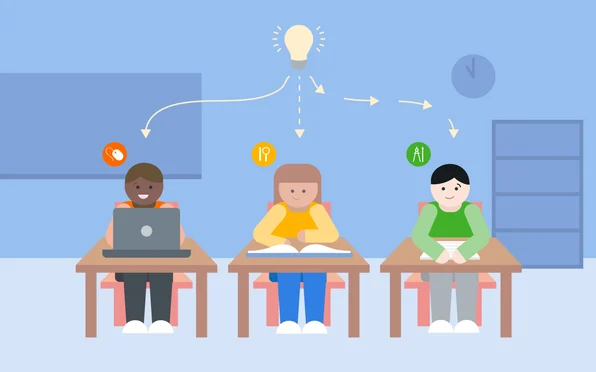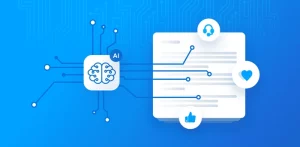- 22 February 2024
- 113
AI in Education: Enhancing Teaching Practices for Educators

Introduction:
Artificial Intelligence (AI) is revolutionizing various sectors, and education is no exception. AI offers a myriad of opportunities to enhance teaching practices for educators, And also providing them with tools and resources to personalize learning, streamline administrative tasks, and improve overall educational outcomes. Here are several ways in which AI is enhancing teaching practices:
Personalized Learning:

AI algorithms can analyze vast amounts of student data to identify individual learning styles, preferences, and areas of strength and weakness. Based on this analysis, educators can tailor instruction and materials to meet each student’s unique needs, fostering better engagement and understanding.
Adaptive Learning Platforms:
AI-powered adaptive learning platforms can dynamically adjust the difficulty and pace of content based on students’ performance and mastery level. This allows educators to differentiate instruction more effectively and ensures that each student receives targeted support where needed.
Intelligent Tutoring Systems:
AI-driven tutoring systems can provide real-time feedback and guidance to students, supplementing traditional classroom instruction. These systems can adapt to students’ responses, offering additional explanations or practice problems as necessary, thereby supporting deeper learning.
Automated Assessment and Grading:
AI technologies can automate the process of grading assignments, quizzes, and tests, saving educators valuable time and allowing them to focus more on providing meaningful feedback and support to students. Additionally, AI can provide insights into students’ performance trends and areas for improvement.
Natural Language Processing (NLP):

NLP algorithms can analyze written or spoken language to provide feedback on students’ writing assignments, facilitate language learning, and support students with special needs, such as those with dyslexia or language disorders.
Virtual Teaching Assistants:
AI-powered virtual teaching assistants can help educators manage administrative tasks, answer common student questions, schedule appointments, and provide reminders, allowing teachers to focus more on teaching and interacting with students.
Data Analytics for Decision Making:
AI enables educators to analyze large datasets to identify trends, patterns, and correlations related to student performance, attendance, and behavior. This data-driven approach can inform instructional strategies, interventions, and resource allocation to improve overall educational outcomes.
Professional Development and Training:
AI can support educators’ professional development by providing personalized recommendations for professional learning opportunities, resources, and instructional strategies based on their specific needs and goals.
Accessibility and Inclusion:
AI technologies can help make education more accessible and inclusive for students with disabilities by providing personalized accommodations, adaptive learning materials, and assistive technologies tailored to their individual needs.
Conclusion:
Overall, AI has the potential to significantly enhance teaching practices by providing educators with powerful tools and insights to support personalized learning, improve student outcomes, and create more engaging and inclusive learning environments. However, it’s essential to approach the integration of AI in education thoughtfully, ensuring that ethical considerations, privacy concerns, and equity issues are carefully addressed.

